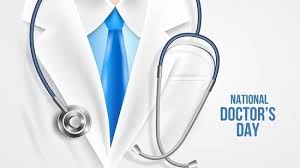Celebrating Doctors: A Tribute to Doctor’s Day
Introduction:
Doctor’s Day is a special occasion dedicated to honoring and appreciating the tireless efforts of doctors worldwide. This day serves as a reminder of the invaluable role these healthcare professionals play in society. Let’s delve into the origin of Doctor’s Day, its significance, and how it is celebrated globally.
Origin of Doctor’s Day:
The idea of commemorating Doctor’s Day originated in the United States. Eudora Brown Almond, wife of Dr. Charles B. Almond, established the first Doctor’s Day in 1933 to honor medical professionals. Over the years, this observance has spread to various countries as a way to express gratitude to doctors for their dedication and service.
Significance of Doctor’s Day:
Doctor’s Day holds great importance as it highlights the selfless contributions of doctors who work tirelessly to save lives, promote well-being, and improve healthcare outcomes. This day provides an opportunity for communities to recognize and celebrate the unwavering commitment of doctors in providing quality medical care.
How Doctor’s Day is Celebrated Worldwide:
Doctor’s Day is celebrated in diverse ways across the globe. From organizing medical camps and seminars to offering discounts on healthcare services, communities come together to express gratitude towards doctors. It is a time for patients, colleagues, and organizations to acknowledge the hard work and compassion shown by doctors.
The Evolution of Medicine:
The field of medicine has undergone significant transformations over the years, shaping the way healthcare is delivered and man.
History of Medicine:
The history of medicine dates back to ancient civilizations where medical practices were rooted in traditional beliefs and rituals. From the contributions of luminaries like Hippocrates to the scientific advancements during the Renaissance period, the evolution of medicine has been marked by groundbreaking discoveries and innovations.
Modern Medical Practices:
In the contemporary era, modern medical practices are based on evidence-based medicine, advanced diagnostic techniques, and specialized treatment modalities. The integration of technology and interdisciplinary approaches has revolutionized patient care, leading to improved outcomes and increased survival rates for many diseases.
Technological Advancements in Healthcare:
Technological advancements such as telemedicine, robotic surgery, and artificial intelligence have reshaped the healthcare landscape, enabling doctors to diagnose diseases more accurately and treat patients more effectively. These innovations have not only enhanced medical interventions but have also made healthcare more accessible and efficient.
The Role of Doctors in Society:
Doctors play a pivotal role in society by serving as healers, educators, and advocates for public health.
Doctor-Patient Relationship:
The doctor-patient relationship is at the core of medical practice, fostering trust, empathy, and collaboration. Doctors listen to their patients, provide expert medical advice, and empower individuals to make informed decisions about their health. This bond is crucial for delivering patient-centered care and promoting positive health outcomes.
Advocacy for Public Health:
Doctors also serve as champions for public health, working to prevent diseases, promote healthy lifestyles, and address social determinants of health. Through community outreach programs, health education campaigns, and policy advocacy, doctors strive to create a healthier and more equitable society for all.
Challenges Faced by Doctors in the Healthcare:
Despite their noble profession, doctors face numerous challenges in their daily practice. From long working hours and high levels of stress to ethical dilemmas and resource constraints, healthcare professionals navigate complex issues while striving to provide the best possible care to their patients.
Recognizing the Unsung Heroes:
Within the medical community, there are doctors who specialize in various fields, demonstrate exceptional courage, and make profound contributions to society.
Specialties in Medicine:
Medical specialties such as cardiology, oncology, and neurology require advanced training and expertise to address complex health conditions and deliver specialized care. Doctors in these fields play a vital role in diagnosing and treating patients with precision and compassion.
Stories of Courage and Resilience:
Behind every successful medical intervention lies a story of courage and resilience. Doctors confront challenging cases, navigate ethical dilemmas, and overcome personal hardships to make a difference in the lives of their patients. These stories highlight the human side of medicine and inspire others to pursue excellence in healthcare.
Impactful Contributions of Doctors to Society:
The impact of doctors extends beyond individual patient interactions to societal transformations. Whether through medical research, humanitarian aid missions, or policy advocacy, doctors contribute to the advancement of healthcare, the eradication of diseases, and the promotion of health equity on a global scale.
Expressing Gratitude on Doctor’s Day:
As Doctor’s Day approaches, there are various ways to express gratitude towards doctors and show appreciation for their hard work and dedication.
Personalized Thank You Notes:
Taking the time to write a heartfelt thank you note to your doctor can make a significant impact. Expressing your appreciation for their care, expertise, and compassion can brighten their day and strengthen the doctor-patient relationship.
Supporting Healthcare Initiatives:
Engaging in initiatives that support healthcare professionals, such as donations to medical charities, volunteering at local clinics, or participating in health awareness campaigns, can help create a more supportive environment for doctors and contribute to improving healthcare outcomes.
Creating Awareness about Doctor’s Day Celebrations:
Raising awareness about Doctor’s Day celebrations through social media, community events, and workplace recognitions can help promote a culture of appreciation for doctors. By sharing stories of inspirational doctors and highlighting their contributions, we can inspire others to join in honoring these unsung heroes.
Summary:
Doctor’s Day serves as a poignant reminder of the dedication, compassion, and expertise that doctors bring to their profession each day. It is a time to reflect on the pivotal role of doctors in society, recognize their impactful contributions, and express gratitude for the vital work they do in saving lives and promoting well-being.
FAQs:
1. When is Doctor’s Day celebrated?
Doctor’s Day is celebrated on different dates worldwide, with variations in the significance and customs associated with each observance.
2. How can I show appreciation to doctors on Doctor’s Day?
Expressing gratitude through thank you notes, acts of kindness, and support for healthcare initiatives are meaningful ways to show appreciation to doctors on Doctor’s Day.
3. What are some common challenges faced by doctors in their profession?
Common challenges faced by doctors include long working hours, high levels of stress, ethical dilemmas, and resource constraints that impact the quality of patient care.
4. Why is it important to celebrate Doctor’s Day?
Celebrating Doctor’s Day is important as it recognizes the dedication and hard work of doctors, raises awareness about healthcare issues, and fosters a culture of appreciation for the critical role that doctors play in promoting public health and well-being.



